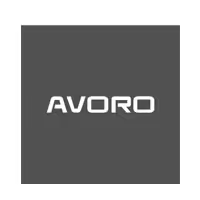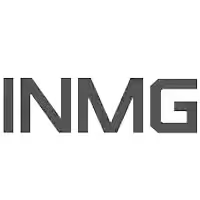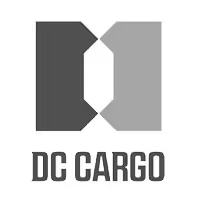The Role of PPC in Highlighting Norfolk’s Strategic Location for Shipping

Norfolk, located in the southeastern region of Virginia, is strategically positioned along the East Coast of the United States, making it an important hub for shipping and maritime activities. With one of the largest natural harbors in the world, Norfolk’s advantages are amplified when viewed through the lens of Pay-Per-Click (PPC) advertising. This article will delve into how PPC can effectively highlight Norfolk's offerings, promote maritime services, and target key audiences in the shipping industry.
The Role of PPC in Highlighting Norfolk’s Strategic Location for Shipping
PPC advertising serves as a powerful tool in showcasing Norfolk's strategic advantages in shipping. By targeting specific keywords and demographics, businesses can effectively reach potential clients looking for maritime services or logistics solutions. The visibility gained through PPC can help emphasize Norfolk’s geographical advantages, facilitating connections between local services and international shipping needs.

Moreover, PPC campaigns allow for geographic targeting, enabling marketers to focus on regions that are critical for maritime transport. This ensures that ads are being seen by those whose businesses rely heavily on shipping routes linked to Norfolk. By showcasing the depth of resources available, companies can capture the attention of shipping managers and logistics partners who may not be fully aware of Norfolk’s potential.
The immediacy of PPC advertising also plays a crucial role in highlighting Norfolk’s strategic location. With real-time advertisements, businesses can respond to the dynamic shipping landscape and quickly adjust campaigns based on global shipping trends, port traffic, and emerging market opportunities. This agility not only promotes Norfolk but amplifies its reputation as a proactive leader in maritime services.
The Advantages of Norfolk’s Infrastructure for Maritime Services
Norfolk boasts a robust infrastructure tailored for maritime services. Its deep-water ports can accommodate a wide range of vessel sizes, from bulk carriers to container ships. This versatility is a key factor in attracting shipping companies and logistics operators to the area. By utilizing PPC, businesses can spotlight these attributes, effectively communicating the operational advantages that Norfolk has to offer.
Additionally, the intermodal connectivity provided by Norfolk's rail and highway systems facilitates seamless transportation of goods. Advertisements can be crafted to emphasize the efficiency of Norfolk’s ports, showcasing how quickly goods can be moved in and out of the area. This can resonate strongly with shipping managers seeking reliable transit solutions, ultimately leading to increased engagement with Norfolk's services.
PPC campaigns can also focus on Norfolk’s commitment to sustainability within the maritime industry. With growing concern over environmental impacts, emphasizing eco-friendly practices and innovative technologies can attract forward-thinking companies interested in reducing their carbon footprint. Such campaigns not only promote local resources but also position Norfolk as a leader in sustainable shipping solutions.
Furthermore, Norfolk's strategic location along the East Coast of the United States provides a significant advantage for shipping routes to both domestic and international markets. The proximity to major cities and manufacturing hubs allows for reduced transit times, which is a critical factor for businesses aiming to optimize their supply chains. Highlighting these logistical benefits in PPC ads can effectively draw attention from companies looking to enhance their operational efficiency.
Crafting Campaigns to Promote Local and International Freight Services
To effectively promote local and international freight services, it is essential to craft well-targeted PPC campaigns. Understanding the specific needs of different markets can enable businesses to tailor their messages towards particular audiences. For instance, local businesses may be more interested in expedited freight services, while international clients might seek comprehensive logistics solutions.
Using tailored landing pages that resonate with the target audience can significantly increase conversion rates. Designing these pages to highlight Norfolk’s specific freight services, pricing, and turnaround times will engage visitors effectively. Integrating customer testimonials and case studies can also provide social proof, enhancing credibility and driving further interest.
PPC campaigns can leverage seasonal trends and events within the shipping industry, allowing businesses to capitalize on peak demand periods. For example, as holidays approach, companies might seek additional export options for consumer goods. Creating time-sensitive advertisements during these periods can generate immediate engagement and drive traffic towards Norfolk’s freight services.
Moreover, incorporating advanced analytics into PPC strategies can provide deeper insights into customer behavior and preferences. By analyzing click-through rates, conversion metrics, and engagement levels, businesses can refine their campaigns to better meet the needs of their audience. This data-driven approach not only enhances the effectiveness of PPC efforts but also helps in identifying new market opportunities that may arise from shifts in consumer demand or industry trends.
Using PPC to Target Shipping Managers and Logistics Partners
PPC advertising offers sophisticated targeting options, allowing businesses to specifically reach shipping managers and logistics partners. This targeting can be based on various parameters, including job title, industry type, and geographic location. By honing in on these specific demographics, companies can ensure their message reaches decision-makers in need of maritime services. The ability to segment audiences not only enhances the relevance of ads but also increases the likelihood of conversion, as these professionals are often looking for tailored solutions that meet their unique operational challenges.

Keyword targeting is another essential strategy in this process. Businesses must research and identify terms that resonate with their target audience. For example, keywords such as “maritime logistics Norfolk,” “shipping carriers,” and “freight services Virginia” can guide campaign structure. This precision targeting ensures that ads appear prominently when potential customers are searching for related services. Furthermore, employing long-tail keywords can capture more specific queries, which often indicate a higher intent to purchase or engage, thus providing a more qualified lead pool.
Additionally, remarketing campaigns can be utilized to reach individuals who have previously interacted with Norfolk's services. This strategy keeps the offering top-of-mind and encourages potential clients to re-engage, ultimately driving traffic back to the service provider. By creating tailored ads that reflect the previous interactions of these users, businesses can significantly increase the chances of conversion, as these individuals are already familiar with the brand and its offerings.
Measuring ROI for Maritime Advertising Campaigns
Measuring the return on investment (ROI) for maritime advertising campaigns is critical for understanding their effectiveness. PPC platforms provide a plethora of analytics tools that businesses can leverage to gauge campaign performance. Metrics such as click-through rates, conversion rates, and cost-per-acquisition are vital to evaluating success. In addition to these standard metrics, businesses should also consider tracking engagement metrics such as time spent on site and pages per session, as these can provide deeper insights into user behavior and the overall effectiveness of the landing pages.
Setting clear goals for each campaign can help businesses measure success accurately. Whether the objective is to generate leads, increase brand awareness, or drive traffic to a website, establishing specific, measurable goals allows for targeted evaluation. Regular analysis of these goals will also enable businesses to make informed decisions about adjusting their strategies and investing efforts into areas yielding the best results. For instance, if a campaign aimed at lead generation is underperforming, it may be beneficial to reassess the ad copy or the call-to-action to better align with the audience's needs.
Utilizing A/B testing within PPC campaigns can provide further insights into what resonates best with the target audience. Testing different ad copies, images, and landing pages can help identify which elements capture attention and drive engagement. This data can then be used to optimize future campaigns for even higher returns. Moreover, incorporating feedback from shipping managers and logistics partners can refine the messaging further, ensuring that the ads not only attract clicks but also resonate with the audience’s specific pain points and operational requirements.
How We Drive Success for Norfolk’s Ports
Driving success for Norfolk’s ports through effective PPC advertising requires a multifaceted approach. It begins with a deep understanding of the port's core strengths and how best to communicate these to the audience. Building a brand narrative that emphasizes Norfolk’s unique value proposition can differentiate it from competitors. This narrative should highlight not only the geographical advantages of Norfolk’s ports, such as proximity to major shipping lanes and robust infrastructure, but also the commitment to sustainability and innovation that sets it apart in the maritime industry.
Collaborating with local businesses and stakeholders can strengthen these campaigns. By integrating community insights and experiences, the marketing messages can become more relatable and compelling. Partnerships can also extend the reach of advertising efforts, helping to broadcast the advantages of Norfolk’s ports to a larger audience. Engaging with local logistics companies, shipping agents, and even educational institutions can foster a sense of community ownership in the port’s success, creating a network of advocates who are invested in promoting Norfolk as a hub for maritime activity.
Continuous evaluation and adaptation of PPC strategies are essential in an ever-changing maritime landscape. Staying connected to trends, challenges, and opportunities in the shipping industry will allow for timely adjustments in campaigns, ensuring that Norfolk's services remain relevant and appealing to the market. Utilizing data analytics to track campaign performance can provide valuable insights into customer behavior and preferences, enabling more targeted advertising efforts. Furthermore, leveraging seasonal trends and economic indicators can help in crafting timely messages that resonate with potential clients, ensuring that Norfolk's ports are always top of mind.
Ultimately, through diligent PPC advertising focused on highlighting Norfolk’s strategic advantages, the region can strengthen its position as a premier destination for shipping and maritime services. This commitment to proactive marketing not only enhances visibility but also fosters long-term relationships with clients, ensuring that Norfolk's ports remain competitive in a global market. By continuously investing in both technology and human resources, Norfolk can adapt to the evolving needs of the shipping industry, paving the way for sustained growth and success.

As a Google Ads expert, I bring proven expertise in optimizing advertising campaigns to maximize ROI.
I specialize in sharing advanced strategies and targeted tips to refine Google Ads campaign management.
Committed to staying ahead of the latest trends and algorithms, I ensure that my clients receive cutting-edge solutions.
My passion for digital marketing and my ability to interpret data for strategic insights enable me to offer high-level consulting that aims to exceed expectations.
Google Partner Agency
We're a certified Google Partner Agency, which means we don’t guess — we optimize withGoogle’s full toolkit and insider support.
Your campaigns get pro-level execution, backed by real expertise (not theory).

4.9 out of 5 from 670+ reviews on Fiverr.
That’s not luck — that’s performance.
Click-driven mind
with plastic-brick obsession.
We build Google Ads campaigns with the same mindset we use to build tiny brick worlds: strategy, patience, and zero tolerance for wasted pieces.
Data is our blueprint. Growth is the only acceptable outcome.





























